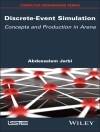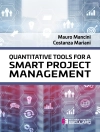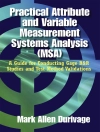The book consists of papers on selected topics of dependability analysis in computer systems and networks which were discussed during the 17th Dep Co S-RELCOMEX conference held in Wrocław, Poland, from June 27th to July 1st, 2022. Their collection will be an interesting source material for scientists, researchers, practitioners and students who are dealing with design, analysis and engineering of computer systems and networks and must ensure their dependable operation.
Being probably the most complex technical systems ever engineered by man (and also, the most dynamically evolving ones), organization of contemporary computer systems and networks cannot be interpreted only as a structure built on the base of unreliable technical resources. Their evaluation must take into account a unique blend of interacting people, networks (together with mobile properties, cloud organization, Internet of Everything, etc.) and a large number of users dispersed geographically andconstantly producing an unconceivable number of applications. Research methods being continuously developed for dependability analyses apply newest results of artificial and computational intelligence. Selection of papers in this book illustrates broad range of topics, often multi-disciplinary, which is considered in present-day dependability explorations; it also reveals an increasing role of the latest methods based on machine/deep learning and neural networks in these studies.
表中的内容
Measures of Outlierness in High-Dimensional Data under Correlation of Features – with Application for Open-Set Classification, Szymon Datko, Henryk Maciejewski, Tomasz Walkowiak.- Multiprocessor tasks scheduling – Fuzzy Logic Approach, Dariusz Dorota.- Nonparametric tracking for time-varying nonlinearities using the kernel method, Purva Joshi, Grzegorz Mzyk.- Embedded systems’ startup code optimization, Patryk Pankiewicz.- Influence of accelerometer placement on biometric gaitidentification, Aleksander Sawicki.- An Impact of Data Augmentation Techniques on the Robustness of CNNs, Kamil Szyc.- Dual Learning Model for Multiclass Brain Tumor classification, Rohit Thanki, Sanna Kaddoura.












